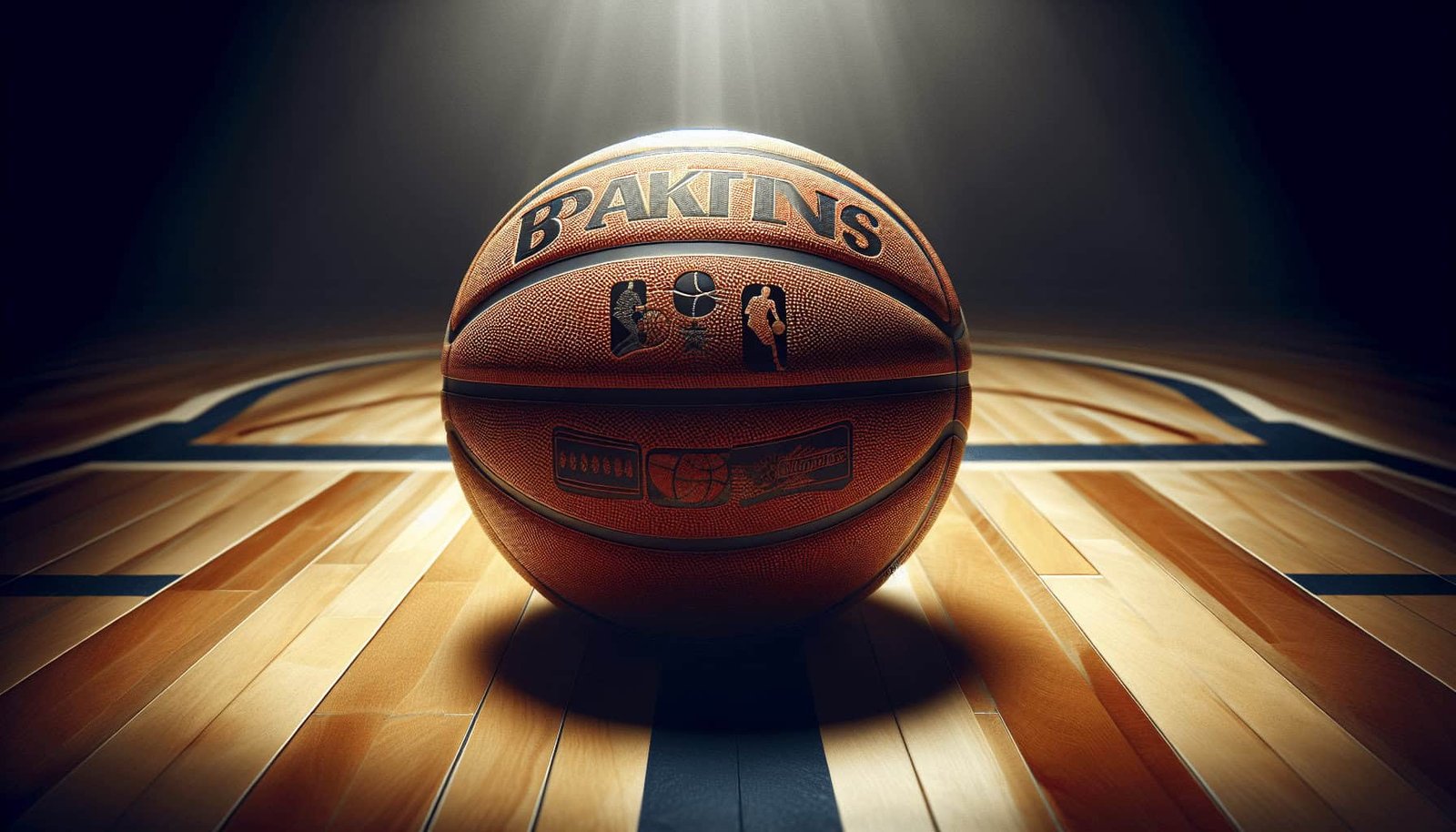Sure, here you go!
“Can You Explain The Markings And Logos On Official Basketballs?” breaks down the fascinating details behind the intricate markings and logos found on official basketballs. You’ll discover how these symbols are not merely decorative but serve critical functions, from brand identification to helping maintain standardization in professional leagues. By the end, you’ll appreciate the meticulous care that goes into designing every basketball you see on the court. Ready to transform what might seem like simple patterns into an interesting journey of discovery? You’re in the right place! Can You Explain The Markings And Logos On Official Basketballs?
Have you ever wondered what all those markings and logos on an official basketball actually mean? Whether you’re a casual fan, an avid player, or just someone curious about the intricacies of the game, understanding these symbols can deepen your appreciation for basketball. There’s more to those orange spheres than meets the eye!
Introduction
Basketballs used in official games are not just random pieces of rubber; they are meticulously manufactured to meet the standards set by various basketball organizations like the NBA (National Basketball Association) and FIBA (Fédération Internationale de Basketball). These basketballs come with various markings, logos, and sometimes even unique designs that serve numerous purposes. This article will unravel the mystery behind these essential but often overlooked details.
The Basic Structure of a Basketball
Before diving into the markings and logos, it’s crucial to understand the anatomy of a basketball. A standard basketball comprises several key components:
- Surface Material: Typically made from synthetic leather or genuine leather.
- Panels: Usually divided into eight panels.
- Lining: Underneath the surface material for added durability.
- Bladder: The innermost part that holds the air.
These elements come together to create a basketball that meets the specific requirements for bounce, grip, and durability necessary for high-level competition.

Common Markings on Official Basketballs
Manufacturer’s Logo
One of the first things you’ll notice on an official basketball is the manufacturer’s logo. Companies like Spalding, Wilson, and Molten are some of the prominent names in basketball manufacturing. The logo is not just a branding tool; it also guarantees a certain level of quality.
League or Federation Logo
If you look closely, you’ll find the logo of the league or federation that the basketball is authorized for use in, such as the NBA or FIBA. This logo signifies that the ball meets the specific criteria set by these organizations.
Size and Weight Indicators
Official basketballs often have markings indicating their size and weight. For example, an NBA ball will typically read:
- Size: 7 (29.5 inches in circumference)
These indicators ensure that the ball meets the specific requirements for official play.
Serial Numbers and Quality Control Marks
Some official basketballs come with a serial number and quality control marks to ensure that each ball meets high standards. These numbers help trace the production batch and quality checks the ball has undergone.
The Function and Importance of These Markings
Each marking and logo on an official basketball serves specific functions, whether it’s to ensure the ball meets organizational standards or to help teams and referees distinguish between different types of basketballs.
Ensuring Standardization
The markings help to standardize the game. Players and officials can rest assured that the ball’s weight, size, and material are consistent, which is critical for fair play.
Tracking and Quality Assurance
Serial numbers and quality control marks ensure that each basketball is up to standard. It helps manufacturers handle any issues that may arise related to the ball’s performance.
Branding
Logos from manufacturers and leagues serve as a form of advertising and represent a seal of quality. A basketball endorsed by the NBA or another major league will be seen as a high-quality product.

Breaking Down the Logos
Manufacturer Logos
Let’s get into details about what the major manufacturer’s logos and the importance they hold. For example:
- Spalding: Known for their partnership with the NBA and high-quality materials.
- Wilson: The official ball of the NCAA and known for its excellent grip.
- Molten: Recognized by FIBA, often used in international games.
| Manufacturer | Notable Features | Common Markings |
|---|---|---|
| Spalding | Official NBA ball | Logo, Serial Number, NBA Logo |
| Wilson | Official NCAA ball | Logo, Size, and Weight Indicators |
| Molten | Used in international FIBA games | Logo, FIBA Approval Mark, Serial Number |
League and Federation Logos
Each league or federation has its specific logo that appears on official basketballs.
| League/Federation | Logo Features | Importance |
|---|---|---|
| NBA | The iconic NBA logo, often in color | Indicates official game usage |
| NCAA | Simple, recognizable logo, often black | Ensures standardization for college games |
| FIBA | Features FIBA’s distinct design | Known for international play and various standards |
Quality Control Marks
Quality control marks could include seals or stamps indicating the ball has undergone rigorous testing. These tests often check for:
- Air retention
- Bounce consistency
- Surface durability
These marks assure that the basketball meets the league’s stringent requirements and enhances the player’s trust in the ball.
Special Edition Basketballs
Occasionally, you might come across basketballs with unique logos or design elements. These are often limited edition or commemorative balls used for special events or anniversaries.
- All-Star Game Basketballs: Balls used during all-star games might have additional logos commemorating the event.
- Anniversary Balls: For instance, NBA’s 75th Anniversary balls had special logos and design aspects to celebrate the milestone.
Importance of Special Edition Balls
These balls often become collectible items and can appreciate in value over time. They also serve to commemorate significant events in the basketball world.

Tips for Identifying Authentic Basketballs
While purchasing a basketball, whether for playing or collecting, it’s essential to ensure its authenticity. Here are some tips:
Check for Official Logos and Markings
Ensure the ball features the adequate logos and markings of the manufacturer and the league. Authentic basketballs will always carry these due to their rigorous production standards.
Inspect Quality Control Marks
Make sure the ball features quality control marks or serial numbers. These are indicators that the ball has passed through various checks.
Feel and Texture
Genuine basketballs have a specific texture and feel due to high-quality materials used in their construction. Inferior quality or counterfeit basketballs often feel different.
Authorized Retailers
Always purchase from authorized retailers or official stores of the manufacturer. This minimizes the risk of buying counterfeits.
Conclusion
Understanding the markings and logos on an official basketball can greatly enhance your appreciation of the game. These symbols ensure standardization, quality, and legitimacy, playing a crucial role in the sport’s integrity. Whether you’re a player, a collector, or just a fan, your insights into these details can deepen your connection with basketball.
So, next time you pick up a basketball, take a moment to explore its markings and logos – it’s a small step that will bring you closer to the essence of the game we all love.

